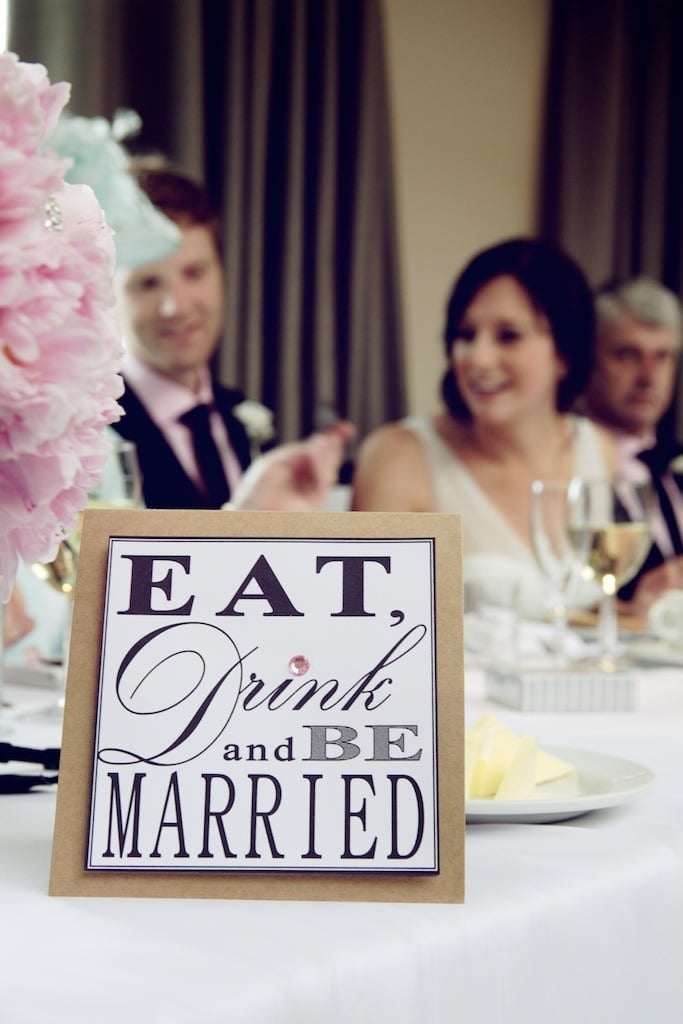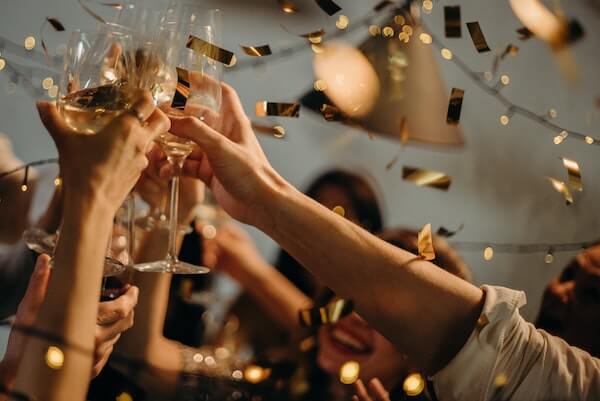
You’re marrying your best friend – and as far as we’re concerned, that merits the celebration of the century. For many couples (and their guests!), that means one thing: alcohol. And lots of it.
But the world of wedding alcohol can feel overwhelming. Should you have an open bar or a cash bar? What drinks will you serve? And how much alcohol do you even need?
Hang on a minute! Don’t decide it’s easier to just ask your guests to BYOB just yet (although we won’t judge you if you do). Here’s everything you need to know about wedding alcohol.
Should You Have An Open Bar Or A Cash Bar At Your Wedding?
Of all your options, an open bar is the most expensive – so it comes down to how much you have to spend. But an open bar doesn’t necessarily mean putting on the works, so consider different types of limited open bars before you ask your guests to pay. For day- and lunchtime weddings, for example, a wine and beer bar tends to be more than enough.
On the other hand, if you are on a tighter budget, a cash bar could be a great option. Your guests will be able to drink exactly what they want – and you won’t need to worry about footing the bill! One thing we will say is that if you can, it’s always a nice touch to still make sure you’ve got in some champagne for the speeches.
What Drinks Should You Serve At Your Wedding
If you can, aim to provide the following alcoholic drinks:
- White wine
- Red wine
- Sparkling wine
- Light beer
- Dark beer
- Spirits
On top of this, you should also provide at least one soft drink option, as well as plenty of water.
A limited drinks selection is an easy way to cut costs – and speed up service.We’d recommend spirits be the first to go. Spirits (especially shots) can push prices – as well as your guests! – over the limit, so ditch them in favour of a premixed cocktail. A signature cocktail is always a great touch to any wedding drinks menu, whether that’s a bespoke drink created just for you or a classic cocktail that has a special meaning for you and your party. You could even rename the drink after yourselves!
For a more limited drinks selection, you might want to offer the following:
- One red wine
- One white wine
- One light beer
- One dark beer
- One signature cocktail
Again, you should always provide at least one soft drink option and water on top of this.
How Much Alcohol Should You Buy For Your Wedding?
You should generally allow for two drinks per hour per guest during your drinks reception, and one drink per hour per guest from then on. You might think that these quantities sound smaller than expected – but remember that for every colleague that loves a martini, there’s a great aunt who’ll sip a small glass of champagne. On top of that, you’ll have guests who won’t drink at all. We tend to budget for soft drinks and mixers for 25% of guests.
As for the remaining 75%, you probably know best! As a general rule, wine tends to be the most popular option at weddings, followed by beer, and finally spirits. But always consider your audience! At an Irish wedding, Guinness might be the go to – while if you or your partner are from the West Country, cider could be the drink of the day. The other thing we would recommend is keeping your wedding date in mind. In the summer, it’s unlikely that many people will go for red wine, instead opting for white wine, champagne or light beers. In the winter, on the other hand, we’d expect to see more people drinking red wine or darker beers.
Once you’ve got an idea of what your guests will be drinking, break your alcohol down into measures:
- A bottle of liquor contains 30 single shots or 15 double shots
- A bottle of wine contains five glasses
- A key of beer contains 124 pints or 165 can-sized servings
Here’s an easy formula to get you started:
(number of guests x length of drinks reception x 2 x 0.75) + (number of guests x length of afterparty x 0.75)
You should always order 10-15% on top of that – so that no matter what, you don’t run out of alcohol! If you can, buy your booze on a “sale or return if unopened” basis. But if you can’t, don’t worry – alcohol doesn’t go off, so you can always keep the party going with a post-honeymoon celebration.
